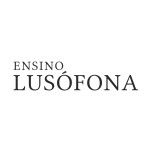About the program
Baccalauréat
Diplôme
Portugais
Langue des instructions
3 années
Années d’études
À temps plein
Mode d’étude
30 septembre 2026
Studies commence
Portugal, Lisbonne
Location
Objectives Journalism is essential to the existence of a democratic society. The Licentiate degree in Communications and Journalism prepares students for an increasingly competitive labour market, marked by the investment on the convergence of journalism and the growing ethical requirements of the profession. Investment on the articulation of a solid theoretical foundation with a practical training that brings them closer to the day-to-day of the multimedia editorial staff. It has a highly qualified faculty that is specialized in the field that it teaches, and is structured in two areas. A specialization according to the means: written, radio, television and digital. Broadening of fields of knowledge: sports journalism, economic journalism, journalism, science journalism, political journalism, journalism and European institutions. Knowledge, abilities and skills to be acquired This degree is distinguished by technological investment that characterizes the Lusophone University (Universidade Lusófona). It provides the students with infrastructures and equipment that enhance the optimization of their training and complement the indispensable theoretical dimension of a university course. At the end of first year the students will already master the basic tools of the professional practice. Thereafter, they begin to be referred either to internal projects, such as the "Journalism at Lusófona" blog and LOC - "Lusophone Online: Contents" (LOC - "Lusófona Online: Conteúdos"), internships in various media companies. Preparing media professionals and journalists that are capable of dealing with a job market that is in constant evolution is the main objective of the Licentiate degree in Communication and Journalism. Career General multimedia journalist. Specialized journalist (including politics, economy, sports, science, culture). Press Journalist (dailies, weeklies, magazines, regional press). Radio journalist (national, regional and local radio). TV journalist (general and specialized). Digital Journalist (individual titles and associates). Entrance Conditions Candidates who meet the requirements defined in the International Student Statute can apply.
Required documents for admission
When applying for admission to Lusófona University (Lisbon) in Portugal you should prepare all required documents. Request a list of necessary documents directly from a university, as it may vary for different countries. Using our live chat, you can also ask for sample documents.
- A Mater’s diploma
- Document that certifies the knowledge of the language of the course you are applying for
- Passport
- Short draft for a Doctoral thesis project
- Document proving the conclusion of the Portuguese High School or equivalent. "To get equivalence to the Portuguese High School check the DGE website"
- Diploma of the degree obtained.
- Photograph
- Academic background of the BA/BSc
- Academic background of the Master’s degree
- Curriculum Vitae, dated and signed
Contacts
Lusófona University (Lisbon)
Campo Grande, 376
Lisbonne
1749-024
Portugal
Frais de scolarité
~ 4 799 $US / année
Frais pour les étudiants internationaux
~ 4 799 $US / année
Frais de scolarité pour les étudiants nationaux
Our services are free of charge. Free Apply does not in any way own, manage, operate or control this university.
Similar programs in other universities
Bachelor of Journalism and Social Communication
Pologne, Varsovie
JOURNALISM AND SOCIAL COMMUNICATION – DESCRIPTION OF THE STUDIES This is a good time for journalism studies. Interesting and valuable journalism is always desirable, and the role...
Bachelor of Journalism
Pologne, Varsovie
The journalism sphere is undergoing a series of unprecedented changes, which make it one of the most exciting and challenging industries. Are you curious about the world, do you ha...
Bachelor of Media
Pologne, Varsovie
The curriculum is based on a critical understanding of key events in international politics. Techniques surrounding interpersonal communication and negotiation are also actively im...
Bachelor of Arts in Digital Media (BA-DM)
Suisse, Genève
The program is taught in English and is held over three years. The BA DM is designed for students interested in pursuing careers in advertising, media and journalism and communicat...
Bachelor in Cinema, Video and Multimedia Communication
Portugal, Lisbonne
Objectives The general objective of the licentiate degree in Film, Video and Multimedia Communication is to promote a training that combines a rigorous theoretical education with a...
More about Bachelor in Communication and Journalism
Learn more about your future job responsibilities and career prospects after completing the Bachelor in Communication and Journalism program.



